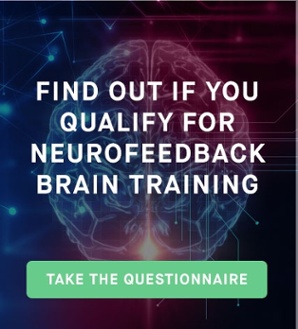
Do you think you or a loved one suffers from Attention Deficit Hyperactivity Disorder, or ADHD? While all individuals challenged with ADHD may present with unique symptoms, there are common symptoms to be aware of. By becoming more educated about the challenges that may come with an ADHD diagnosis, a most effective treatment plan may be established so that healing can be achieved.
Here are six common symptoms of ADHD in adults:
- Inability to stay focused. One major symptom of ADHD in both adults and children is the inability to concentrate for a long period of time. When you can't focus your attention, it can affect you in many ways. You may become confused and fall behind on your responsibilities and lose confidence in yourself. Your co-workers or family members may look negatively upon you as a result of not understanding your condition.
- Tendency to procrastinate. When faced with a project, adults with ADHD may frequently put things off until the last minute because they just cannot sit down and focus on the task at hand. They may become even more overwhelmed the longer they wait, which can cause anxiety and continue the vicious cycle of procrastination.
- Impulsive behavior. Frequently acting or reacting without thinking is another common symptom of ADHD in adults. This behavior includes being disruptive, interrupting others, and failing to consider the consequences of their actions. Oftentimes, individuals with ADHD may reflect upon their impulsive behavior and feel disappointment in themselves and regret, wishing they could have behaved differently.
- Easily distracted. From quickly losing interest in a conversation to being unable to direct their attention to one task at a time, people with this symptom have difficulty accomplishing what they need to get done and may also have challenges establishing or maintaining quality relationships.
- Restlessness. Those who cannot sit still and tend to feel restless much of the time may be displaying signs of ADHD. Like fidgety children with ADHD who have difficulty paying attention in class, adults with ADHD act similarly when they are at work, at home or anywhere else for that matter—a tapping foot, hair twirling, day-dreaming, etc.
- Mood swings. Being unable to concentrate or complete a task, for instance, can become frustrating over time. As a result, adults with ADHD may also experience abrupt changes in their mood when they become agitated. In addition, some adults with ADHD are unaware that diet may play a role in their symptoms. Proper nutrition may simultaneously assist with increasing health and decreasing mood swings.
While it’s important to be aware of these symptoms, remember that not everyone with ADHD has the same experience. Many of these symptoms may also be directly related to specific life circumstances, such as trauma, tragedy, a lost job, etc. Physical health may also play a role in behavior that appears to mimic symptoms of ADHD.
If you are concerned that you or a loved one have ADHD, rather than self-diagnose, we recommend consulting a trusted, experienced medical professional who can evaluate your symptoms and determine if you should be diagnosed with ADHD. Thereafter, you and your health care provider can work together to create a treatment plan that can assist you in managing your symptoms and achieving optimal health.
Do you have ADHD and are looking for a holistic ADHD clinic? Learn about the services offered by the Northport Wellness Center that may be able to assist you.












